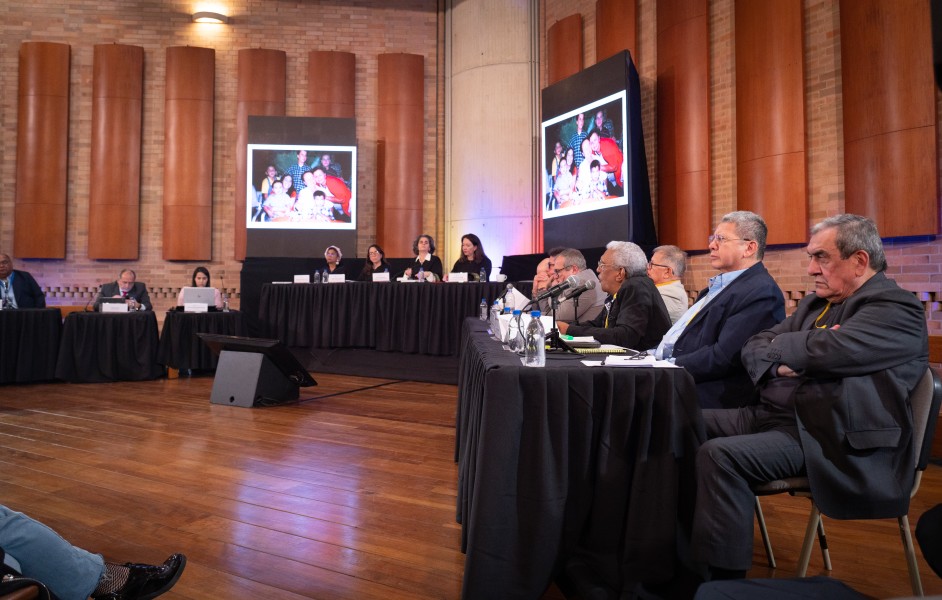Colombia’s justice system has long grappled with how to address massive human rights violations committed during the 50-year internal armed conflict. The sheer volume of crimes has made it impossible to prosecute them on a case-by-case basis, typical of an ordinary criminal justice system. The Special Jurisdiction for Peace (JEP), a tribunal established by the 2016 peace agreement, has therefore applied a macro-criminal approach to investigate and prosecute war crimes and crimes against humanity committed by former members of the Revolutionary Armed Forces of Colombia (FARC-EP) and the public security forces. As part of this approach, the JEP groups together multiple crimes into so-called macro-cases. The purpose is to reveal the broader patterns of macro-criminality—as opposed to focusing on individual or isolated acts—and prosecute those most responsible for these crimes.
The study of macro-criminality is critically important to transitional justice and specifically to efforts to pursue accountability for large-scale, systematic human rights violations. The discipline’s ever-evolving debates inform and improve the practice of criminal justice as it relates to mass atrocities.
To help enliven these debates and broaden access to them, ICTJ has translated into Spanish for the first time ever the seminal essay "Can Politics Be Criminalized?" written by German criminologist Herbert Jäger. The essay was originally published by Nomos Publishing House in 1998 as part of a collection of writings on criminal policy, entitled Enlightened Criminal Policy or the Fight Against Evil?. Jäger, who died in 2014, is widely considered a pioneer in the study of macro-criminality (Makrodelinquenz). He devoted much of his career to what he described as “criminality committed by large collectives, state apparatuses of power and political systems far removed from the law.”
In the essay, Jäger explains the phenomenon of macro-criminality and how criminal law has dealt with it. He tackles the question of whether traditional criminal law is suitable for the investigation and prosecution of macro-level crimes, such when the state or other collective actors systematically target individuals who share common characteristics. Jäger argues that criminal charges for macro-level crimes should take into account the context in which they were committed and seek to unveil the modus operandi of the criminal apparatus in question—be it a state or a non-state actor. To this end, he describes the types of sanctions that should be imposed in these cases as well as the prosecutorial strategy that should be used. He also reflects on the role of national and international criminal law in the dismantling and prevention of macro-criminality.
_______________
PHOTO: In 2022, the Special Jurisdiction for Peace (JEP) convened the first acknowledgment hearing for Macrocase 1 involving war crimes and crimes against humanity related to kidnappings committed by the FARC-EP. In adjudicating the case, the JEP applied the concept of macro-criminality. (Maria Margarita Rivera/ICTJ)
